Episode #52: Caring for Your Child with Disabilities: How to Plan for the Future
Show Notes: In this episode of the Water Prairie Chronicles podcast, host Tonya Wollum interviews Amanda Owen, founder of the nonprofit organization Puzzle Pieces. Amanda shares her personal journey of growing up as a sibling to a brother with a rare disability and how it has impacted her life. She talks about the emotional impact of having a sibling with a disability, the challenges and joys that come with it, and the importance of emotional intelligence in processing those feelings. As a special education teacher, Amanda felt called to do more to support people with disabilities and founded Puzzle Pieces, a nonprofit organization that has been serving the community for almost 11 years. Through her own experiences and the work of Puzzle Pieces, Amanda has become a coach for parents and siblings of individuals with disabilities, helping them navigate the emotional and practical aspects of their situations. In this candid and heartfelt conversation, Amanda shares her perspective on growing up as a sibling to a brother with a disability and the lessons she has learned along the way. Whether you are a parent, sibling, or friend of someone with a disability, this episode will provide valuable insights and inspiration on how to support and advocate for those with disabilities. Join us next week for the rest of Tonya’s conversation with Amanda. She talks more about her experiences, the books she’s written to help support children with disabilities and spread awareness and acceptance, and her work with her non-profit, Puzzle Pieces. Amanda loves to connect! Find her at: Website: piecesofme.org Podcast: https://podcasts.apple.com/us/podcast/pieces-of-me/id1547078857 Facebook: https://www.facebook.com/piecesofmebyamanda Instagram: https://www.instagram.com/piecesofmebyamanda/ Connect with Us: https://linktr.ee/waterprairie Support this channel: https://www.buymeacoffee.com/waterprairie “2 Truths and a Lie” Game: Can you guess which statements Amanda shared were her truths and which was her lie? Post your best guess in the comments below. We’ll post the correct answer on Instagram next week so be sure to check and see if you were right. 1. Her brother was the 11th person in U.S. with his diagnosis. 2. She is 2 episodes from 100th on podcast. 3. She loves to cook and try new recipes. Music Used: “LazyDay” by Audionautix is licensed under a Creative Commons Attribution 4.0 license. https://creativecommons.org/licenses/by/4.0/ Artist: http://audionautix.com/
The Water Prairie Chronicles Podcast airs new episodes every Friday at Noon EST!
Find the full directory at waterprairie.com/listen.
Special Needs Planning for the Future
Show Notes:
In this episode of the Water Prairie Chronicles podcast, host Tonya Wollum interviews Amanda Owen, founder of the nonprofit organization Puzzle Pieces. Amanda shares her personal journey of growing up as a sibling to a brother with a rare disability and how it has impacted her life. She talks about the emotional impact of having a sibling with a disability, the challenges and joys that come with it, and the importance of emotional intelligence in processing those feelings.
As a special education teacher, Amanda felt called to do more to support people with disabilities and founded Puzzle Pieces, a nonprofit organization that has been serving the community for almost 11 years. Through her own experiences and the work of Puzzle Pieces, Amanda has become a coach for parents and siblings of individuals with disabilities, helping them navigate the emotional and practical aspects of their situations.
In this candid and heartfelt conversation, Amanda shares her perspective on growing up as a sibling to a brother with a disability and the lessons she has learned along the way. Whether you are a parent, sibling, or friend of someone with a disability, this episode will provide valuable insights and inspiration on how to support and advocate for those with disabilities.
Join us next week for the rest of Tonya’s conversation with Amanda. She talks more about her experiences, the books she’s written to help support children with disabilities and spread awareness and acceptance, and her work with her non-profit, Puzzle Pieces.
Amanda loves to connect! Find her at:
Website: piecesofme.org
Podcast: https://podcasts.apple.com/us/podcast/pieces-of-me/id1547078857
Facebook: https://www.facebook.com/piecesofmebyamanda
Instagram: https://www.instagram.com/piecesofmebyamanda/
Connect with Us: https://linktr.ee/waterprairie
Support this channel: https://www.buymeacoffee.com/waterprairie
“2 Truths and a Lie” Game:
Can you guess which statements Amanda shared were her truths and which was her lie? Post your best guess in the comments below. We’ll post the correct answer on Instagram next week so be sure to check and see if you were right.
1. Her brother was the 11th person in U.S. with his diagnosis.
2. She is 2 episodes from 100th on podcast.
3. She loves to cook and try new recipes.
Music Used: “LazyDay” by Audionautix is licensed under a Creative Commons Attribution 4.0 license. https://creativecommons.org/licenses/by/4.0/ Artist: http://audionautix.com/
Meet Today’s Guest:
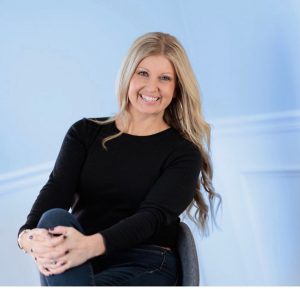 Amanda Owen is an accomplished children’s book author, blogger, podcaster, and nonprofit founder/director. She is a lifelong advocate for people with disabilities, inspired by her older brother Nick. Amanda is dedicated to empowering women to find their purpose and lead fulfilling lives, free from societal expectations. She and her husband, Justin, have two sons. Amanda’s inspiring message is to dream big, work hard, own your mistakes, and laugh often.
Amanda Owen is an accomplished children’s book author, blogger, podcaster, and nonprofit founder/director. She is a lifelong advocate for people with disabilities, inspired by her older brother Nick. Amanda is dedicated to empowering women to find their purpose and lead fulfilling lives, free from societal expectations. She and her husband, Justin, have two sons. Amanda’s inspiring message is to dream big, work hard, own your mistakes, and laugh often.
Episode #52: Caring for Your Child with Disabilities
How to Plan for the Future
(Recorded February 22, 2023)
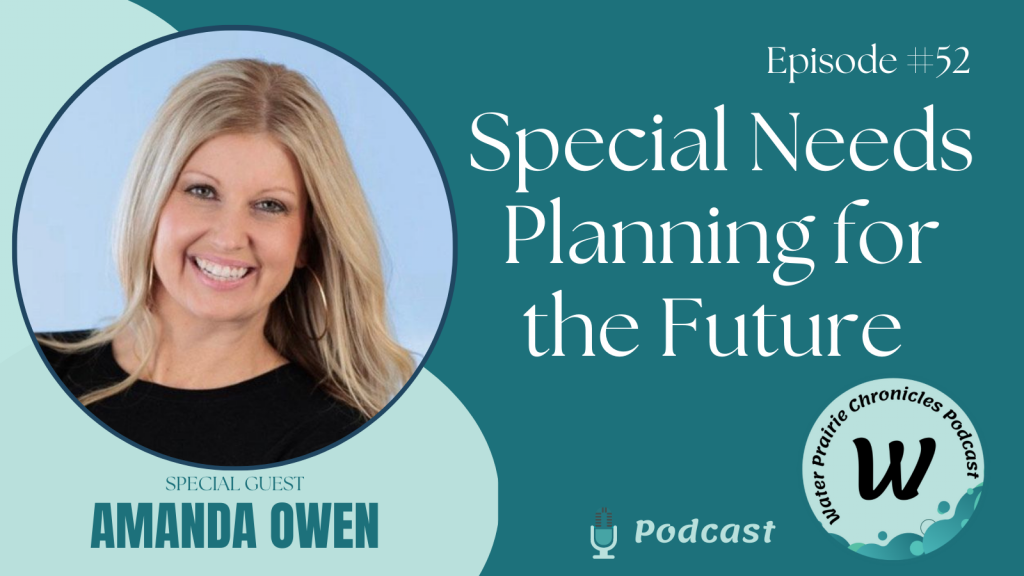
Welcome to the Water Prairie Chronicles. A podcast created to encourage and support parents of special needs children. I’m Tonya Wollum and I’m glad you’re here.
Tonya Wollum: Welcome back to Water Prairie. We appreciate you being here today! I have a special guest with me today. Her name is Amanda Owen. And Amanda, I came across on Instagram.
I was pretty impressed with what she’s doing. It seems like every time I log in, I see something else that she’s involved in. So, I’m looking forward to getting to know her better today and introducing her to you. But just briefly, Amanda’s gonna tell us a little bit about her brother Nick. And I’m gonna hold off on that a little bit and let her tell us more.
She lives in Kentucky, and she is the host of a podcast called Fuel Your Purpose. She created a nonprofit. She’s maybe tell us a little bit more about that in detail. But the nonprofit is called Puzzle Pieces and she’s the author of a series of children’s books called Owen the Wonderer. So, Amanda, thank you for coming on today and welcome to Water Prairie.
Amanda Owen: Yes, thank you for having me. I’m super excited.
So, if you could take just a minute and tell us a little more about that, that was like a really rough overview of who you are, but, but there’s a whole lot more behind all of that. So, tell us a little bit more about yourself.
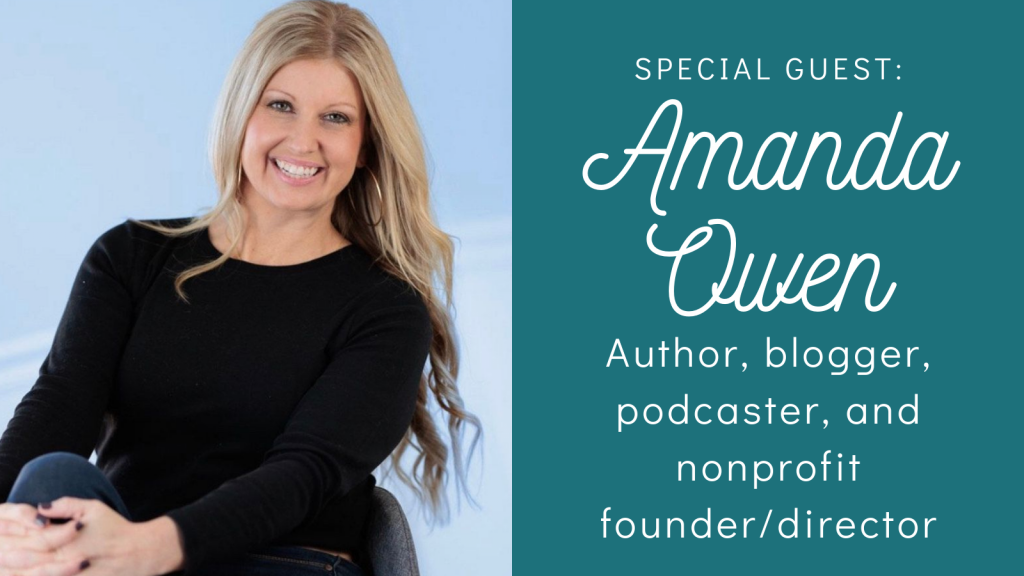
Yeah. So, you know, I think that when people ask especially women about who they are, they tend to start to say like, I’m a mom, I’m a wife.
You know, I’m a nonprofit founder, I’m an author. I’m all of these things, but yet I forget to say like, I’m Amanda. Right? And so that’s really the passion behind the platform, Pieces of me by Amanda is because I have so many different pieces and layers to me, and most people knew me as Nick’s sister, Amanda, and I think that that’s where kind of my journey started.
I’m a sibling to a brother with a very rare disability. and he’s older than I am, and I grew up in a very small town. I played softball. I used to love coaching softball. I had so many passions that I did, and I became a special education teacher. Started a family. Um, I have two boys. I love being a boy mom, and I’ve been married for, 16, 15 years.
Oh my gosh. I don’t even know how long I’ve been married. A long time. A long time. Um, so yeah, I, you know, I taught special education for six years. I knew that was gonna be the passion and the purpose in my life. And I, six years into it, I decided to start a nonprofit organization that is called Puzzle Pieces to support people with disabilities.
And since then, that was 10, almost 11 years ago now. And, wow, life has taken different … God just has led me on different paths to live out of purpose to honor His gifts that He has given me. So I know that that’s a loaded a lot of bio. Like when I send my bio out, I’m almost embarrassed cause I’m like, oh wait, can a person really do all of these things?
And like, I’m trying to figure out how to do all of those things. And you know, they’re not check boxes for me. It’s just honestly going through the doors in which God opens and I’m just very blessed to be able to, to live in life on purpose and figure out my purpose early in life, and everything’s aligned to that.
So yeah, that’s a little bit about me.
That’s great. That’s great. Those that are listening, in the show notes I’ll be putting links to all the things that she’s involved with. Because you’re gonna wanna dig in more and see more of what she’s doing. But we’re gonna talk about some of the specific pieces of what she’s doing during this meeting today.
As we get started, I’ve been asking this season for each of my guests to share three facts about themselves, two of them being true and one being a lie. So, Amanda, do you have your “2 Truths and a Lie” ready to share with us?
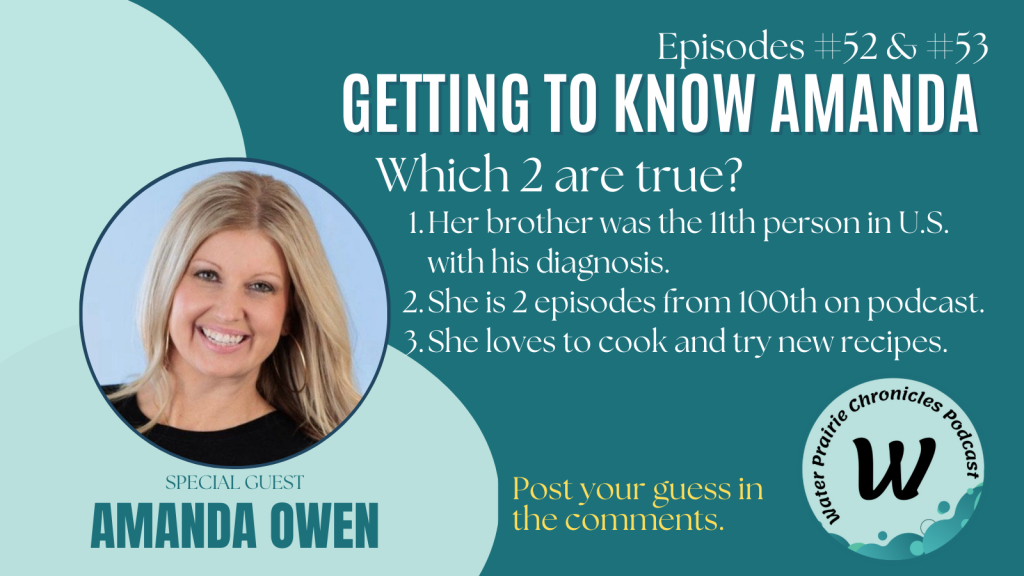
I do.
- My brother was the 11th person in the country to be born with his particular disability.
- I am two episodes away from recording my hundredth.
- I love to cook, and I’m always in the kitchen trying new recipes.
Okay. All right. Thank you for sharing that. Those that are listening, go to the show notes here and leave a comment. If you’re on YouTube, go to Instagram, go to Twitter. Post what you think the truths and the lie are, and a week after we release this, we’ll be posting the answer on Instagram and Twitter, so you’ll be able to see if you’re correct or not. If you’re listening to this later, you can still guess and then check your answer later.
So I wanted to get into, when I invited Amanda to come on to the podcast, I asked you about two different topics that I’d like to talk about. And um, the first one that I wanna talk about is specifically about being a sibling of someone with special needs.
You talked about Nick and having an older brother, so you’ve grown up in that environment yourself, but you’re also working with others who are in that same situation. So I thought you’d be the perfect person to bring in a little more information on this. Before we go into the questions themselves, is there anything that you’d like to share about just your personal experience with growing up as a sibling?
And then we can get into some of those specific questions that I had.
Yeah, I mean, honestly, I coach a lot of mamas now on the perspective or, uh, from the perspective of a sibling, because I think that I didn’t know then what I do know now as an adult, and I don’t think that I really understood the emotional impact that having and growing up with a brother with a disability had on my life.
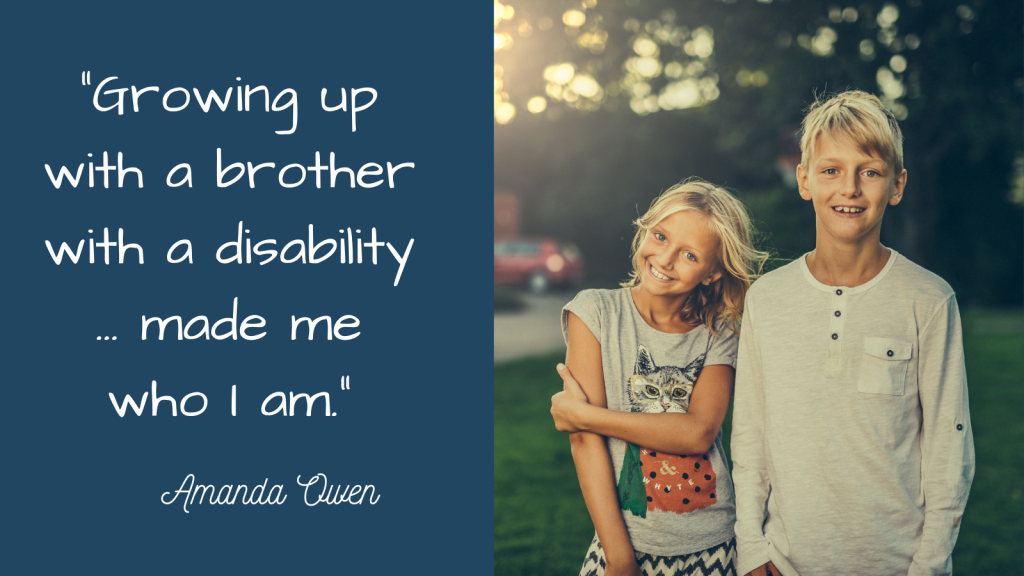
https://www.pexels.com/photo/boy-standing-beside-girl-outdoors-590472/
Whether that was good or bad, it made me who I am and I didn’t realize or was able to put language or understanding to those emotions or to the significance of that impact until I was an adult processing that, and I don’t think it could have happened any sooner because I say this all the time to families I coach, is that children, they’ve had when a mama gets the diagnosis that their child has a disability, they’re, I mean, I would think they’re at least 18, 16 or older, right?
So they’re a little bit older in their life, and so their emotional intelligence to process what’s happening, they’ve had the entire pregnancy to process that. Then when they’re born, they’re learning through that as they’re navigating the diagnosis. Learning what the ends and the outs and, and navigating societies you know, what they think about it and, and how to advocate for that in school.
And then they might have another child with or without a disability. And so what happens when a child is processing that their sibling, they don’t have the emotional intelligence yet they, it hasn’t developed yet to understand maybe they don’t know life any, but probably some of the same emotions that a parent would go through, the sibling is going through, but they don’t, they don’t know what to do with those feelings, and they definitely do not know how to share those very well.
I didn’t know that until I was older. Right? And so I think that, and I am the woman I am today. I would not, you know, a lot of people, I get asked some of the questions like, do I ever resent my mom or my dad? You know, my dad doesn’t get hardly any credit. Um, but my parents are still together. Um, but like, do I resent them?
You know, what did they do better than most parents of why I turned out the way that I did? You know, like, or did I hate my brother growing up? Like all of these things I get asked on a daily, and really, I don’t know, these were the cards that were dealt. Like, I don’t know, if it wasn’t this, it was gonna be something else, right?
And so, right. I don’t know any different, I just know that the way my life was, whether it was through the sacrifices, whether it was through the joy, whether it was through the hard or the great, it made me the woman that I am today. And so yeah, I think that there’s so many, I don’t like to call it trauma, and I think some people would classify some of the things I went through as trauma as a child, but it wasn’t trauma to me. I didn’t know it would to be trauma. It was experiences that shaped me to, to be not just who I am, but how I think and how I wanna show up and the mom that I am. Um, so yeah, I think that I’ve learned a lot from that and now I’m able to have a platform to be able to share that and, and cast light to that because siblings as much as being a parent to a child with a disability is very isolating.
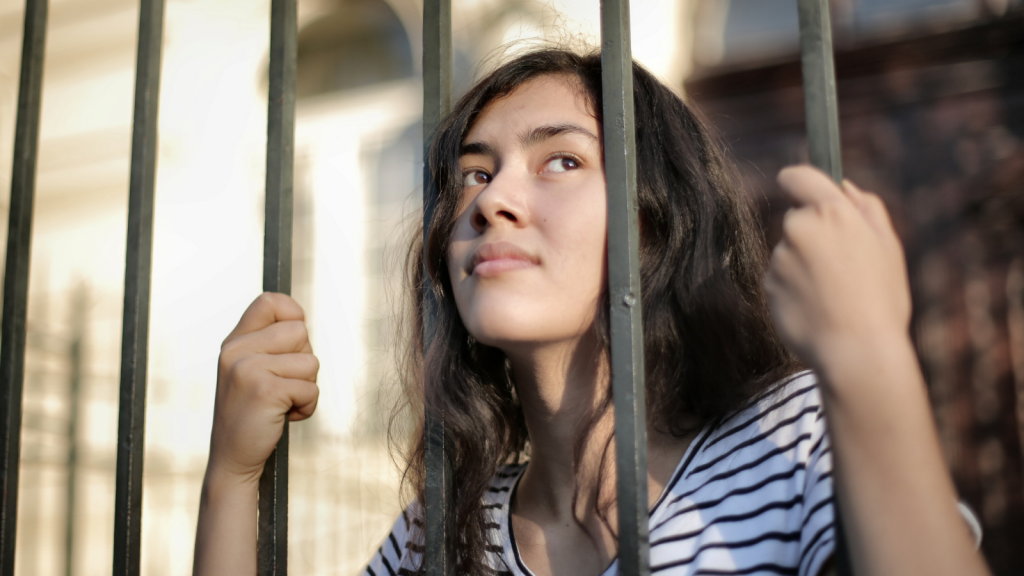
Sometimes being the sibling can be very isolating and we don’t have the support like a parent would, and so we just, I don’t know that I spend all my time there. Um, but really that’s not even my passion. It just happened. It’s God’s purpose for me to connect with other siblings because I’m gonna be a future caretaker for my brother, and I know that.
So, yeah, I don’t know if you, that’s a loaded answer. Uh, but that’s kind of …
No, it was, it was good.
Well, I think, I think you bring out an important part that, you know, our kids who were growing up as typically developing children who have a sibling with a special need or a disability, they don’t know life any differently than what they know.
And so, and I think that’s kind of what you’re saying there, your life was what it was. You don’t have a comparison with that. You may have had a girlfriend that you spent time with and saw their family was different, but every family’s different. So that may not have made a difference there either.
My kids joked, they were, some of the first couple of interviews that I did, we were kind of practicing on the family first. Before we had guests offsite. My son talked about being the sibling at first because my daughter was older. She’s visually impaired, so hers was cut and dry from day one.
We knew there was something going on, so he was always the one who kind of took the backseat for a while until his disability started creeping up as he got older. And so he joked about how she was more special than he was because we knew things before with her, but I do remember there were stages where they would kind of take a backseat for each other just outta necessity because they may have had some needs, but the other one definitely needed more help at that moment in time. And as a parent, I appreciated the fact that they were able to do that because I don’t know if I could have split myself to focus both directions at the same time.
Right, right.
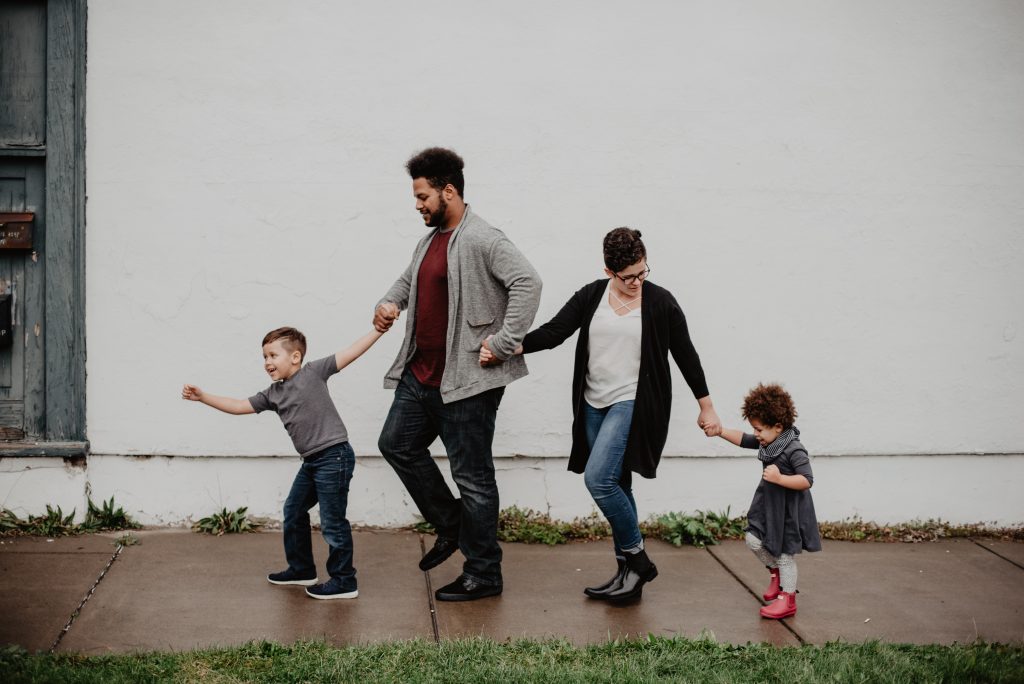
https://www.pexels.com/photo/family-of-four-walking-at-the-street-2253879/
I give our parents with multiple children with multiple needs, a lot of credit, cuz it does take a lot of energy to figure out who needs what, where the doctors are, who the specialists are, all of those things. Especially when they’re little and you’re still trying to put all the pieces together for each of them.
Absolutely.
So the reason I wanted to talk to you really about this topic is because you are a sibling. You openly talk about being that sibling and you also have more knowledge, I think than most do as far as what’s gonna be involved with being that adult sibling. And as you said, you know, one day you will be the caretaker.
So that’s why I wanted to talk a little bit more specifically with you about this cuz I felt like you’d be able to bring to us a little more information than some of my other guests that I’ve spoken with. One of the questions I wanted to ask you was how can we, as a sibling, thinking more of that older child, younger adult, maybe that age range, how can siblings be involved in the care of their brother or sister and decision making without stepping on their parents or the legal guardians at that?
Like before they’re officially in that role of being a guardian or a caretaker, how can they still be involved knowing that one day that is gonna be theirs?
Well, I think I can answer this in two different ways. Um, I’m always, cuz I coach it in two different ways. I just spoke to a little girl, actually. I went to a school and spoke to a sibling who is trying to be mom. Um, and she’s in fourth grade and she is trying, and she wants to help. That’s primarily what happens is we wanna help because we see the struggle. We see the struggle more so that we’re not trying to help our sibling, we’re trying to almost help our parents because we see them not struggle. And I don’t wanna use that term loosely, but we see sometimes what they have to navigate. And we just want to be able to offer help because maybe if we do help, if we do step in, then maybe they’ll be able to see us. Or maybe they’ll think that, you know, I, that’s how I get to spend time with my mom and my dad.
And so I navigate a lot of kids, teenage, middle schoolers. You don’t have to be that now. And I think that sometimes we overly worry about the future. So, we’re almost too much involved. And so, we forget about how to be the sister or the brother. Um, and ultimately that’s what we need to be. We need to first be able to figure out how that relationship can just be not a caretaker.
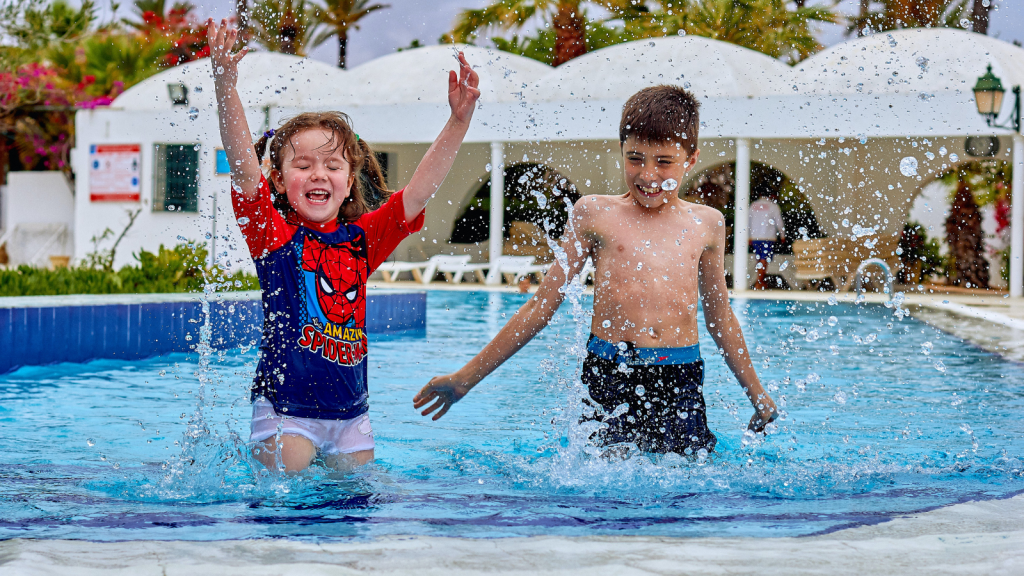
https://www.pexels.com/photo/kids-playing-in-the-swimming-pool-5649993/
I’m not thinking like a caretaker. How do I just learn how to play? Be a sister. Like I used to remember thinking about, I was like in second grade, and I was poking fun of my brother about something stupid. I mean, I think and, and somebody, one of my friends was like, can you poke fun of him? I’m like, why not?
Like, he’s my brother. And they’re like, it, I think we forget that there still has to be a relationship there. And I see so many times parents either putting too much pressure for them to show up to be that perfect sibling. Right or not. You can’t poke fun of your brother, you know, he has a disability.
I’m like, I’m not even poking fun of him about his disability. Right, you know, like I’ll never forget when I was even younger too. I strapped my brother into this, his therapy tricycle, bicycle, I strapped him. It’s a wonder I didn’t kill him. I strapped him in and thought it was fun to be able, he pushed me down the hill, like pushed me on my bicycle. So, I was gonna push him on his bicycle, not thinking that thing was gonna tip over and he was gonna fall. Cuz he doesn’t have the ability to like steer it right now. Right? We were just being. Right? And those are the memories that stand out to me the most, even as an adult, is when we were just allowed to be kids and my mom wasn’t over there saying, you can’t do that with your brother.
Don’t do that. Like, he’s too gentle. Like, you gotta be right. Use gentle hands. I mean, there was sometimes I probably needed to be that reminded, but I’m just saying, and I know that I’m not really answering the question directly, however, indirectly I think siblings need to figure out how to be a sibling first and how to cultivate that relationship because it’s in those moments that will make them better caretakers later.
Because if we’re not a sibling first and we don’t understand how to like build trust in just a relationship of love and understanding disability or not. Then even as we get older either we’re not gonna know how to caretake because we never, it wasn’t built on anything or we’re not gonna have the desire to care.
So, I think that’s first and foremost. The second part to that is I think that we can’t get so involved. Sometimes caretaking comes naturally. I will say what my parents have not done a very good job of that I’m very open about to all other parents is that, and I try not to get emotional when I say this, but like my parents didn’t have conversations.
They still, to this day, don’t have conversations with me about what will happen when, when they die and what do I need to know about my brother. Like I feel like I know like. Uh, most things because I’ve seen it all my life, but now I’m not at home, right? And so my mom shares and, and I’m there. But like, am I, do I really know?
Do I really know what his favorite way is to do his morning routine? Do I really know that right? Or am I gonna assume that? Um, and we don’t have conversations about that because it’s too hard. Parents feel as though they’re in. and if I don’t have the answer, then I’m just gonna pretend like it’s never gonna happen.
Like my mom did not want to think about me being my brother’s caretaker ever because that was too hard for her. Yeah. She just wants to live forever and, but yet that’s not preparing me for the role that I need to play to make sure that transition is smooth for my brother, not for me, but for him, and so I really do coach of like, when the timing is right, you should know, but I think parents need to start journaling and, and leaving a guidebook if you can’t verbalize it.
I like that journal to leave the book, the playbook. Because I would much rather have a playbook, and I’m not just talking about the doc, here’s who you go to here, he goes to the doctor. This is his dentist. But that way we can still just focus on being the memories of a sibling and not, so it being daunting and drowning of, shoot, I’m gonna have to be their future caretaker and can I do this?
It’s not a matter of can I. Right? It’s just if I have the willingness. You know, do I have the, you know, what do I, what’s the foundation? I have to build on that? I hope that I was able to explain it.

No, I like that idea. I think that’s, I love the idea of parents just journaling what’s happening because life changes, and as the sibling is growing up as well their rate of growth, maybe a different rate of growth than yours, but they are still making changes and they’re maybe able to take on more of their own care, things like that.
But as all of us age as well, that might also reverse later as they’re getting older. So having someone that’s documenting those changes that are happening and how things are being done would help whether it’s the sibling coming in or someone else as well, knowing what’s happening. Well then, I really like that.
Well, the other thing to that, I think sometimes what I don’t know that I wish I did and luckily my mom, we don’t have intentional conversations about it, but I’ve just seen her over the years and other parents like, let’s just be real. This is not about just what my parent did. I coach and I support over 400 people with disabilities.
So like I’m, I sit back and call all their parents and taking care of them. Everybody wants me to be the future guardian and I just can’t do that. And I’m a caretaker right now to an adult with autism who lives with me. So I’m getting a play by play even now. So I’m actually having to journal cause I know he’s not gonna live with me forever.
So like I’m journaling even though I’ve known how to advocate. And that’s the biggest piece that you can’t teach. And there is no so, you know, whether that’s advocating for healthcare, like it’s not just a matter of leaving the doctor, the dentist in which they go to, but just know that these are the struggles that I’ve had to fight for with going to the dentist and this is how I overcame them.
Like, this is what I wish you would know that I knew later. Right? Because that, those are the things that it shouldn’t, we don’t want the individual with a disability to have to restart their life in just the hardest transition that they’ll ever encounter. Right. That’s only gonna be through the person leaving, and we just can’t assume that we’re always gonna be here.
Right? Well, depending on who this adult is that we’re talking about, they may have, you know, one comfort piece that made the difference in whether those transitions could happen or maybe they need a transition time to get ready for those things. Um, so a lot of our listeners, I mean, the focus of, of the podcast is for parents of young children, and I know this is kind of a little bit off from where they’re thinking right now. But at the same time, some of those lessons that they’re learning right now with that young child will still be the same situation with that older child with it. So, I think it is …
It's never too soon to start preparing! Share on XIt’s never too, like, it’s never too soon to start preparing.
And I think because no matter how old their loved one is with a disability, their child, their fears are already there about long-term living. They’re already trying to figure out how they outlast their child. Um, I know that because I’m surrounded by families, like I said. So, the fear happens the day one, that they realize that they’re raising a child with, with different needs.
And so that fear can only be silenced or lessened when we have a plan in place. And if that means that you can’t verbalize that out loud, to a future caretaker. You don’t know who that future caretaker is. Like I get that a lot. Like, well, I don’t, they’re an only child or my other children do not wanna be their caretakers.
So even if you don’t know, start journaling now. Right? Like start leaving that because that is what’s going to help your child and give you some type of controlling peace around the fear. Because the fear is there no matter how old they are. Yeah.
Well these are important conversations. I think they are hard to have. No different than having that same conversation with their parents as they’re getting older too.
We’re gonna have, part of life is having these types of conversations.
Those that are listening, I sent Amanda a list of questions that I kind of wanted to run through, but as we talk, sometimes I change what I’m doing here.
Yeah. I’m an open book, so you can ask me anything.
Well, it’s like, I’d love to just, just continue pulling it all out of you here. So, as we’re talking about, just thinking of that older sibling there. Um, you know, not necessarily at the age that you and Nick are right now, even, it might even be, you know, our teenage siblings that are there.
Um, but how can a sibling help support and encourage independence for their sibling? Um, like are there any stories that you can think of from when? Because, because Nick is how much older than you.
He’s three years older than I am.
Three years older than you are, so he would’ve been in high school age or similar.
Mm. He’s 41 and I’m almost being 39. ,
uh oh. She… You’re just a child.
I’m still having a hard time. Yeah. I’m having a hard time with that,
But just thinking back, like when you were in high school, maybe, or even your early twenties, were there ways that you were able to help him have independence and all without maybe doing everything for him?
Is that, am I even making sense with that question?
Yeah. No. Yes. Um, I think that the unique thing about siblings is we have a different approach than our parents. And so, I do believe we need to lean into that. And luckily, my parents always allowed me the freedom to be able to be not only the sister, but to, to try things, to like teach to, to guide.
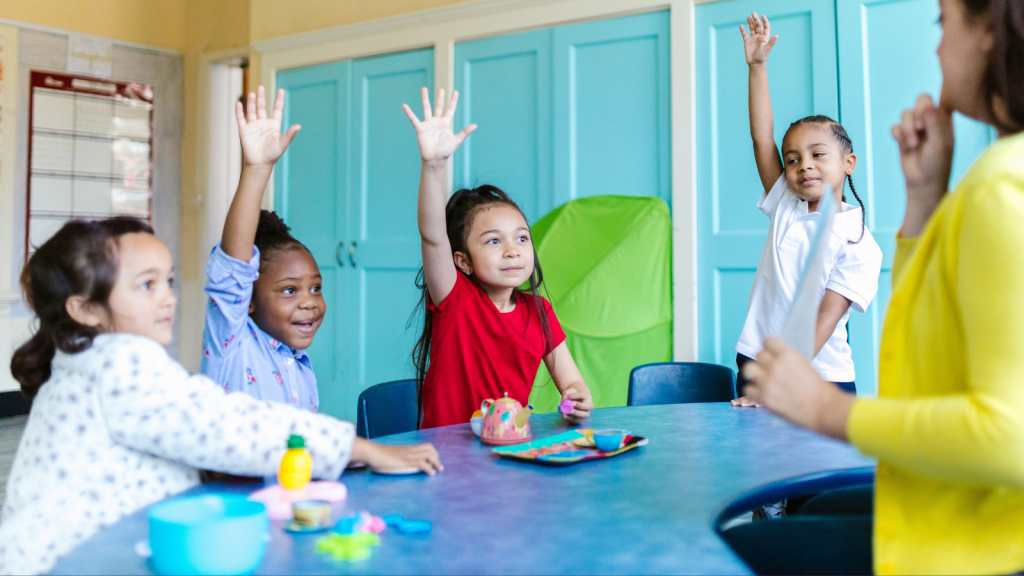
I knew when I was five years old, I told my mom I wanted to be a special education teacher so I could teach students like my brother because I saw what he didn’t have. So I was always trial and airing anything with my like, like if he I’ll never forget we were, I was making pizza and he wanted to help and I really kind of sometimes hated the idea of him helping me. So like I always be like, no, you’re not gonna help me, but you can make your own . You know, like I just, I was very, I think that happened naturally. Um, it was never forced and I know that that’s really hard sometimes, especially when we talk about autism. And, and my brother had a very unique, uh, disability and, and his cognitive and in how he approached things are definitely different. So this is not all encompassing, but you can take nuggets from it because I do work with a lot of siblings that struggle more with that parallel coaching or the parallel modeling in reference to someone that may have you know, level three, uh, or towards level one autism.
And so I think that it does maybe look a little bit different. However, modeling is the best thing that siblings can do, and so, of just, I think we all society as a whole. Um, and probably this is what I do most in advocacy is um, just kinda like the pizza thing. My mom would not let him do that. I know she wouldn’t because he would make a mess. It would probably come out raw and you know, like the toppings would be halfway on or halfway off. Who knows? But I’m using that as an example is because sometimes we want those with intellectual disabilities, not to fail. And that’s the one approach that I didn’t do as a sibling and I still don’t do, even as a provider and a teacher, is I’m setting them up not to fail, but all of us, every human out there, we learn through sometimes our experiences of not getting it right. And so I was given the freedom and that’s what I really would challenge. Let’s not set them up for, and let’s mom and dad to kind of like, whoop, like, uh, you know, hold, bite their tongue to see what happens, to see what happens when that relationship comes naturally and not forcing it.
And so what if they were to do it a little bit different than you do, or challenge them in a different way? See where it goes. Let them fall. Let them fail. Um, you can undo anything. And that there’s so much time in today’s society, like we have so much time to undo what we think is harming, I mean, certain things, right?
But when it’s talking about like teaching and modeling and sometimes parallel model is the best way to do life. And so those are some of those examples. I’m not trying to promote, I didn’t ever look at it as a promoting independence. I never looked at a strategy like we talk as parents because we’re so conditioned to a kid, don’t understand that.
Don’t teach them how to have a certain strategy of a first and then don’t tell ’em. That’s a strategy. Tell ’em like they probably work best if you say, or they learn best or you know, like if you say first this, then this. Let them naturally figure that out. Like, and, and just give them a little bit and see where it takes them.
Because most of the time siblings can motivate their loved one way different than anybody else can. Um, but also don’t put that pressure. So I’m gonna say that like, I’ll never forget when my brother and I were in the same elementary because we were close in age. Um, and again, remember this is before ADA was a law, right?
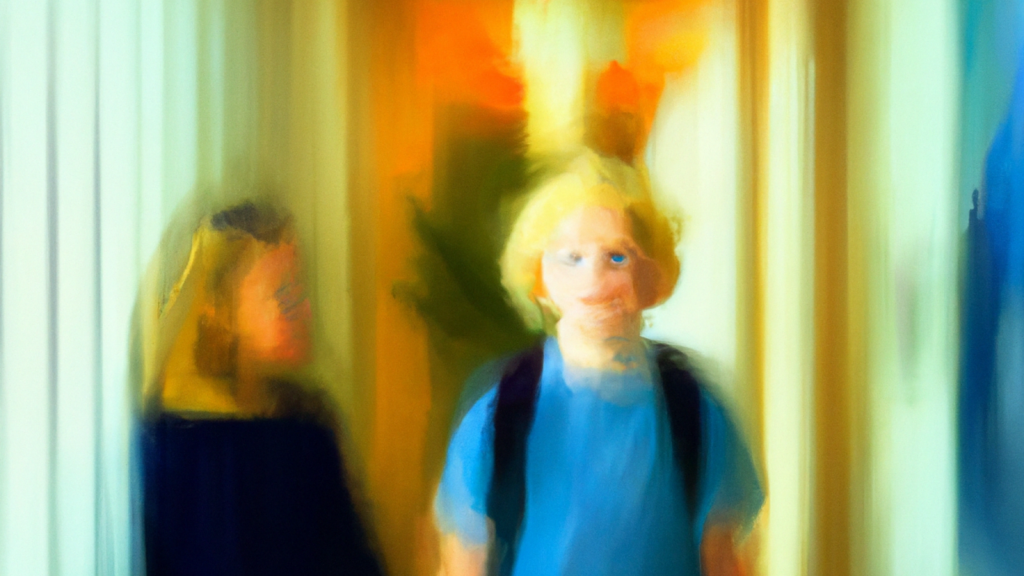
Um, he went through schooling that were very backwards thinking. And so, I don’t remember how many times, but it became a major issue is when my mom started to advocate to get Nick put into a school that was more equipped to supporting Nick’s needs because the teachers did not know how to handle him or support him. And so guess who was getting pulled outta class so that way I could support him. It was me. I was getting pulled and teachers would support me to figure out, do you know, I don’t know half of like how to go through speech. Um, I don’t know half of how I even been able to make it now because I couldn’t learn the basic foundations of my elementary school that teaches you the foundation of academics, only because my life was being pulled to help my brother through school.
And so I say that to say we shouldn’t want that pressure on those that, the sibling as well, so that they can figure out how to blossom in their own ways. And my mom, what my mom also did is she did not want to see me struggle. Um, and she wanted me to be very smart because she pushed through me and my parents pushed through me what they couldn’t get from my brother.
And so they did a lot of my homework. They, they didn’t wanna see me struggle. Um, so they, so that again, it has impacted me as an adult. Like that’s why I say I can’t spell or do phonics because what happened in my elementary, yes. Um, and I can laugh about that now, but I wouldn’t have known that when it was happening.
I thought it was cool I was getting outta class, but it did get, like, it did impact me obviously.
I think it turned out all right.
Obviously it did, and that’s what I’m saying, like it made me to be the person I am. And so I wouldn’t trade any of it for the world, no matter all the failures, not matter, all the wins, uh, that I had, my family had, Nick had.
"When you know one person with a disability, you literally know one person."- Amanda Owen Share on XAll of it got me to this point, and through my advocacy, through how I show up differently for every person. When you know one person with a disability, you literally know one person. And so, yeah. I realized that when I became a teacher, like not everybody’s like my brother, and I was like, oh, whoa.
Like I’m in for a world of wakening, right? Um, so yeah,
I mean, you, you can have two kids with the same level three diagnosis with autism and they’re not anywhere near each other. So yeah, you’re right. And depending on the day of the week, sometimes it can make a difference on, on how much support is needed there.
So, in Interesting. Can you talk much about, like, as parents are thinking about their older kids as like as they’re thinking down the road, are there anything specific that they need to be thinking about with legal and financial affairs that they need to do? Um, guardianships wills trust.
Like, can you give any advice on who they should talk to, how do they …
A hundred percent. This is what I do all day.
Oh, do you really ?
Yeah. Um, well, it’s just the nature. Within my nonprofit, I’ve learned a lot especially with long-term. So it’s not even applies to my brother, my brother’s unique to that situation only because what I know, it has nothing to do with what I’ve experienced as a sibling.
Um, I’ve been able to apply that. But you know, long-term care for those with disabilities is a, is a national crisis. Um, no matter. And we are really, and especially where I live in the state of Kentucky, it is, it’s more so of a crisis than anything else. There are not enough resources you know, and back and I don’t know how much this applies to all states.
"Long-term care for those with disabilities is a national crisis"- Amanda Owen Share on XAnd I’m trying to learn that now because I am an advocate across the United States. But you know, in the state of Kentucky, there for a while if you had a certain waiver program. Um, and they pay like Medicaid waiver, and they paid for services or residential. An individual couldn’t have more than $2,000 to their name.
Which financially impacts them to be able you, if you died and you left ha like not knowing any better and you left half of your money, uh, half of your house, half the land. To, to all of your kids. You know, like if you divided it up, that money, like they would lose some of their resources in their waiver because that’s assets that they can’t have.
So I definitely think it’s, it’s I will also say too, that I recommend, and I’m not gonna say I’m an expert in any of this, but there are certain life insurance policies that a family can get. That actually when something happens that will fund a trust fund. Um, for the long-term care of their individual, for their loved one.
And so there are different, like in the state of Kentucky, we have an ABLEs Act. I don’t know how that applies across, but there are certain different ABLEs Acts. But you definitely, there’s a special needs trust.
Right now what families need to look at is even no matter how young their child is, is starting a special needs fund. And even if you put $50 in it a week or, or a month or however you do, just as much as you prepare for a retirement, and you prepare like a will and all of those things. Definitely I think a special needs trust.
I look at it as like a savings account, like a restricted savings account, whereas some of these ABLEs accounts and say all these other different scenarios. Those are more like a retirement plan. They’re very restricted to maybe how they pull money out. So, you’re definitely start having those conversations now in guardianship.
You know, if you said that there’s a lot of younger mamas on here and their child’s young. I think the hardest part is when they, when an individual turns 18, you know, you have to go if … they automatically become their own guardian. And so I think that’s probably one of the most challenging. For some families, either A, they didn’t know that and B, that they didn’t know that they needed to get a lawyer to be involved, to go through the courts, to be able to petition, to maintain as their legal guardian after they turn 18.
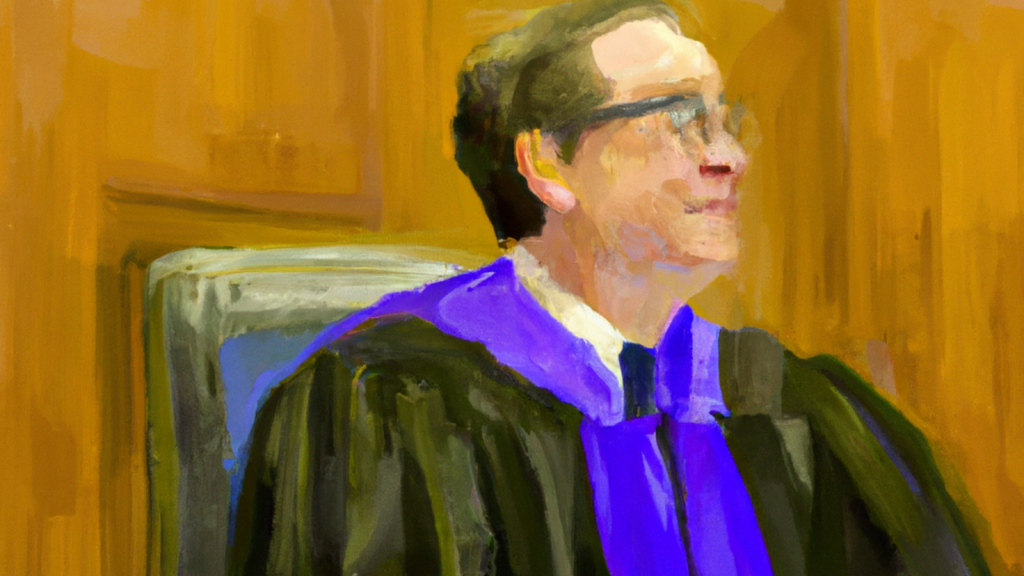
That’s important for some families to know. Um, especially it does have some … families don’t want to think that they can’t take care of their money or they can’t take care of this, or they, they don’t wanna say that out loud. Um, and it’s very hard to go from through a court to basically declare incompetency.
Um, you have to come face to face with some things. And so that’s very hard for a family and I don’t wanna take that. And it doesn’t mean that all people with disabilities and uh, or an intellectual disability needs to not be their guardian. I support so many of them that are their own guardians with certain supports, right?
It’s not a matter of taking care, like taking away their rights. Just because you become the guardian, you do have a set of, it does protect some boundaries. Um, you know, like for example, I’ll give you an example for my brother. My brother was not his own. If my parents were not his guardian, when he used my grandmother’s credit card to purchase like 30 videos of Girls Gone Wild and done a lot of other things, you know, like he, he would’ve maybe had some charges being brought to him or some things that been, that were happening that wouldn’t have necessarily held up because he would not have been able to advocate for himself as an his own guardian. Right? And sometimes they only will talk to the person that’s the guardian.
And so those are the things that circumstances, you’ll, you never might not think that you’re in , but I’m in ’em all day long all the time. Not necessarily with my brother, but with a lot of other things. Um, and so, yeah, I’m not saying they strip out a strip away their rights. Um, individuals with disabilities still have the right to vote, open their mail, like all these things still happen even though they’re not their guardian.
Um, but you do need to understand as they start to approach 18 of where you stand on that and what needs to, and there’s part guardianship, like you can just be over money and, uh, you know, process through SSI money and things like that. You, it doesn’t have to be full incompetency in all areas. Um, they could just be the payee and the structural within their, their money that they receive.
Um, so yeah, and, and just so that you know, if you don’t have guardianship, if you go and apply for guardianship and you are the legal guardian to your adult child with a disability and you don’t have that set up in their will in your living will as to what, like who you’re leaving guardianship to and you haven’t declared that within your will and no, like maybe they don’t have a sibling or even right now if I wasn’t declared in their will as the guardianship and that was gonna transition over.
If something, if my parents were to die in a car accident tomorrow, it would be held up. He would have to go to state guardianship, and it would be held up for a while. If it’s not declared in the will, I would have to fight a lot of things. I shouldn’t have to be fighting if those are not really spelled out to understand what that’s, so, that’s why it’s so important to have that spelled out into a will as well.
Sorry, it’s a loaded question, but Yeah.
So in, in the event that were to happen where no one’s there, how long. So they would automatically go to state guardianship. How long would they stay in that situation if there is no one to be found? Or is that where it would stay forever?
If there’s no one to be found?
That was, that’s where it’ll stay forever. State guardianship. Okay. They’ll, if there’s dis, if, if when they were 18 or whenever it happened. If, if they, if they’re deemed as incompetent and um, a guardian. then state guardianship will be applied to that to take care of and make the decisions based on their needs and care.
Okay, so that’s not what you want to have, but in so an important time. So, at 18 is when that would have to happen. How soon before their 18th birthday should a parent start looking at starting the process?
I would say probably like six months before they’re 18th. Okay. Now, if you would ask me this during Covid, I would’ve said probably two years, that knew covid was gonna happen.
I would’ve prepared for them a lot sooner, but that delayed a lot of scenarios in our world. So yeah, I would say probably six months of just making sure that you reach out to a lawyer and making, you know, there’s expense involved. And unfortunately, you just have to do that or yeah, it complicates the things.
It’s really just to protect your loved one.
And I know you’re not a financial advisor or an attorney that’s coming into this, but you’ve had some experience, so we’re just pulling from this. So this is not professional advice in any way. Yes. From, from, from either of us here, , but the so you, so you would need an attorney that, that you’re working with there.
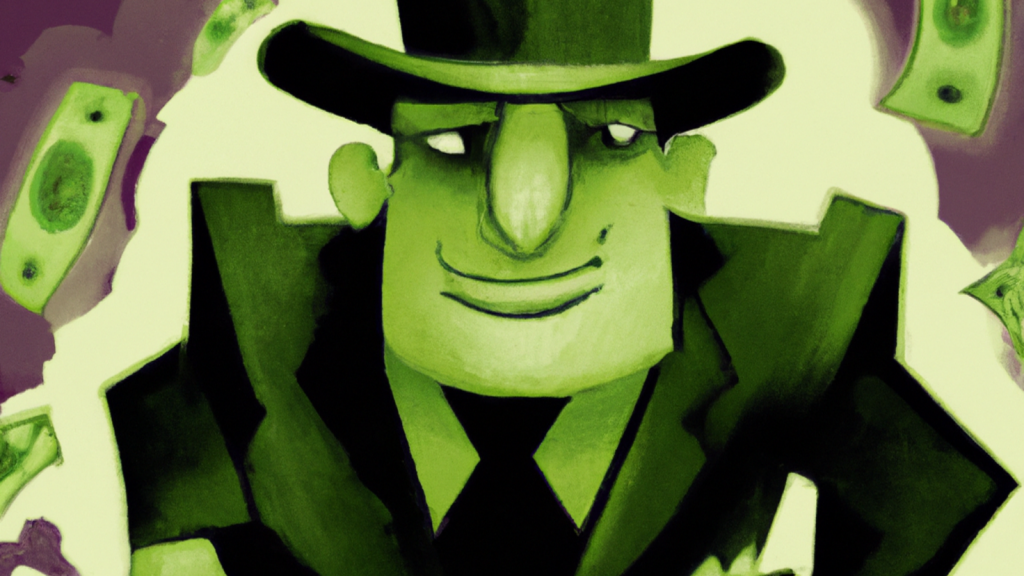
The financial piece too as well. Like if they went to a financial advisor, like, I highly recommend for you to do homework in reference to.
"Not every insurance agency that's gonna sell you a life insurance policy or an attorney or a financial advisor, is equipped to giving you knowledge as their expertise in reference to special needs trust or what you should do with… Share on XLike how to help you to manage that. So, there’s a ton out there. Luckily in my hometown, I have several because somehow some shape or form somebody was impacted by a disability and so they were passionate within that. Um, and so I’ve connected and there’s a lot that have reached out to me, so they’re there.
"Sometimes parents just wait too late to do the homework, and it's already too late."- Amanda Owen Share on XYou just have to make sure that you’re plugging in. I think sometimes parents just wait too late to do the homework, and it’s already too late. Like, I’m working with a family right now and they’re in their eighties and they’re just now having this conversation. I’m like, whoa. Like, what happened when you were in your forties?
Why are we not having this conversation? So, right. I’ve just been pulled in a lot of bad situations probably in the last eight years, you know, like in the last eight years of navigating some of this long-term care that families just, they don’t know their options and they’re not, there’s information that’s out there, they’re just, they don’t know they need to know. So, I say right, even if your, if your kiddo’s three years old, right now, it’s not gonna hurt you to understand and, and kind of have like that vision map of what you kind of need to do when you do it. Because so many families are in survival mode. Like, if I can just make it till tomorrow, I’m good.
"So many families are in survival mode. Like, 'if I can just make it till tomorrow, I'm good.'"- Amanda Owen Share on XIf I just make it, we tend to think of it as either milestones, as ages or, or seasons of life. Like we’re just making it to the next milestone, to the next grade, to the next age, and I think that is important to get through. And I’m not saying that you have to like have it all figured out, but just get yourself in the know, don’t, don’t not be in the know and then wait too late and wish that you had.
We had talked about the ABLE accounts, and those funds are specific in what they can be spent on, but um, but those, I believe could be used for the, to help pay for those fees that you need to be able to get that put into place.
Um, and so, and we did, for those that are not familiar with the ABLE accounts, we did do a segment on this a few weeks back. So look back through and you’ll be able to see how to connect to the, the nationwide account through there. We just specifically talked about the North Carolina ABLE Accounts, but it doesn’t matter which state you’re in there if your state doesn’t have one, you can plug into one for another state.
So, it’s a federal program.
And just another nugget of advice if you are. spell out in your will as well of who is the, the executive estate over the ABLEs account. Like who’s gonna be the, if it’s not gonna be the guardian, who’s gonna have that? Uh, we just had two situations where an individual went and, and lived with a provider.
So like they were in long term, like a group home, living with a provider. That’s what we do as well. And the Guardian assigned over the provider to manage the ABLE account, like to manage their account? Well, that provider filed bankruptcy. Like they’re a business, they filed bankruptcy, but they just assume they’ll be here forever.
Right? And so, they have not had access to their money in almost two years. Well, since Covid, cuz the bankruptcy happened during Covid. So I would just be make sure that you know that ABLEs account and who you leave it to and like who, just because they might be in a home or a situation, still have someone on the outside.
And I’m saying that as a provider cuz I’m a payee to a lot of people. Um, don’t leave that to our, as a responsibility to us because you never know what the future may hold for them. Right?
Good, good, good information here. We were talking about Nick earlier, and your mom had had to advocate for some of his needs.
Have you been in a situation where you felt like you needed to advocate for him as well?
Not Nick. Not yet. My mom won’t let me. Um, my mom and I are exactly alike. Um, I used to hate that, but now I love that. Um, there’s never been a point. Now my mom will call me and ask me now that I’m in the position I am. Um, she hates that.

Um, so she doesn’t wanna ask for help. We have this thing where we don’t like to ask for help. But I haven’t had to do that for my brother, but there has been a lot of advocacy as you know, like, uh, and I know that we’re gonna talk about this later, but you know, within my nonprofit, a lot of what we do is, is some of it is long-term care, and I just never realized, I think it opened my eyes to some of the exposure of what my mom have had to advocate throughout the years. Mm-hmm. and you know, I’ve, I’ve been with clients until the day that they died and spoke at their funeral. Like, I think that I never knew how important or how hard it was to advocate in sometimes the healthcare system of healthcare equity.
So those are the situations that I’m spending a lot of time advocating for. There was a situation that I just advocated. Um, we were called into a situation where in, in our community, a neighbor, they all signed a petition that this certain individual shouldn’t live in their neighborhood because she was walking down the street and, you know, knocking on the door and wanting to come in, and they just don’t feel safe.
I’m like, well, don’t let her in like, she has the right to be able to live on the same street as you do, but don’t let, don’t make me be the bad guy. You know, I think that’s what I try to do in advocacy and education is sometimes people in society are so, to like to set the boundaries to teach in the moment.
You can’t allow a provider or an education teacher or the parent to be all of that. They need help with being in the moment, like right now I’m busy. I’m so sorry, come back. You know, on Wednesdays I will only allow that’s all that the redirection that this individual needed. But instead, they just wanted it completely gone away with.
I’m like, she has the right to live on the street. So I guess it’s those advocacies, like I’ve never had to do that for my. , but I have had to advocate a lot for like rights in the workplace mainly in healthcare. And that’s been the most surprising thing and some advocacy around you know, just because they’re incompetent, you know, they’ve been, you know, they are, their guardian has done incompetency, right?
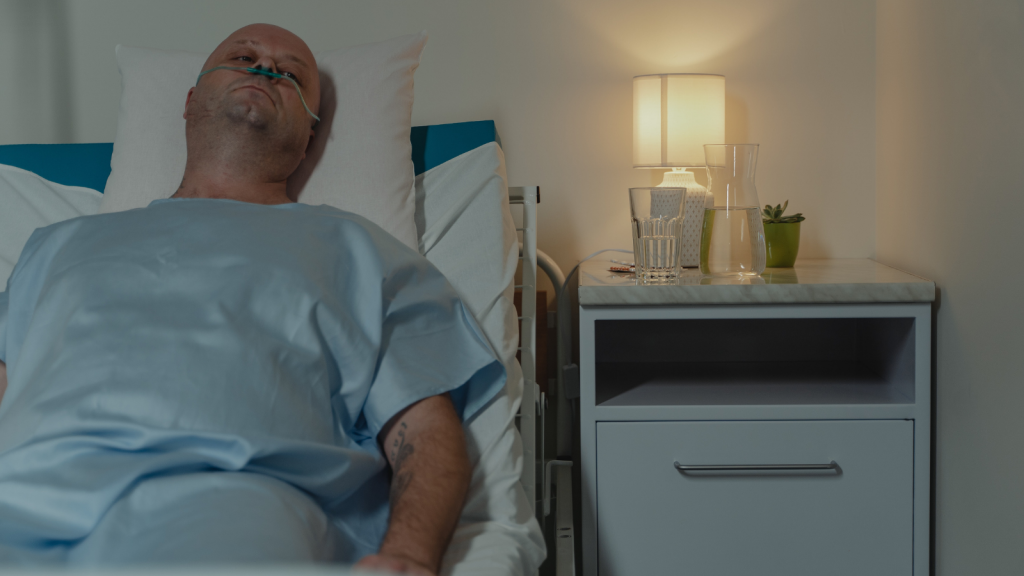
https://www.pexels.com/photo/sick-man-lying-on-hospital-bed-6010794/
And so, I’ve helped navigate siblings. Um, and so there was a situation I. with some siblings that the individual did not want to have a feeding tube. Um, and the siblings wanted them to, and so they couldn’t under he, they chose not to tell him. Um, and he just woke up and he had a feeding tube. And even though he didn’t have the it wasn’t his choice to be made, uh, legally, um, they didn’t consider what he wanted and so trying to advocate for him while also educating the siblings and trying to be very, like, those are the situations that I’m in now. I’m just like, he has a right to be able, how do we let him live? Like how do we listen and honor what he wants? But then they were like, he doesn’t really understand the consequences to that.
I’m like, how do we know that? Like, can we talk to him a little bit longer about that? So those are the advocacy that I kind of tend to. lots of advocacy within my state as well of just employment first model and, and a lot of those different things.
I think even taking from that, those that are listening that may be adults now who have a sibling you know, hearing to have that conversation.
Don’t, don’t assume that what you know is the only way. It might be that there is a say that your sibling has to whatever the situation is that’s there. Um, and, and I know a lot of times those choices, like you were talking about with these siblings, it’s because they think that what they know is what’s best and mm-hmm.
and it may be health-wise, it is best, but to give the person that’s affecting a say in the matter, at least, whether it can be honored or not, at least to hear, hear and make sure that they, that they’ve had their, their input there too. Um, you know, I just think about respecting people for who they are …
Mm-hmm.
I will say they learned that advocacy from the parents and seeing what they do. So, their parent was no longer here. Right. But they saw that the mama took care of everything. Like that was just how it was. So, they were only doing what they knew and they thought was best based on what was modeled for them.
So I say how important it is of how you show up for advocacy of don’t … I’ve learned a lot of that as a kid of being in a therapy session where maybe I shouldn’t have been, but, and maybe I shouldn’t have been. Like I wasn’t forced ever. But what I’m saying is, if you want, don’t force it to happen. But it’s just a natural way.
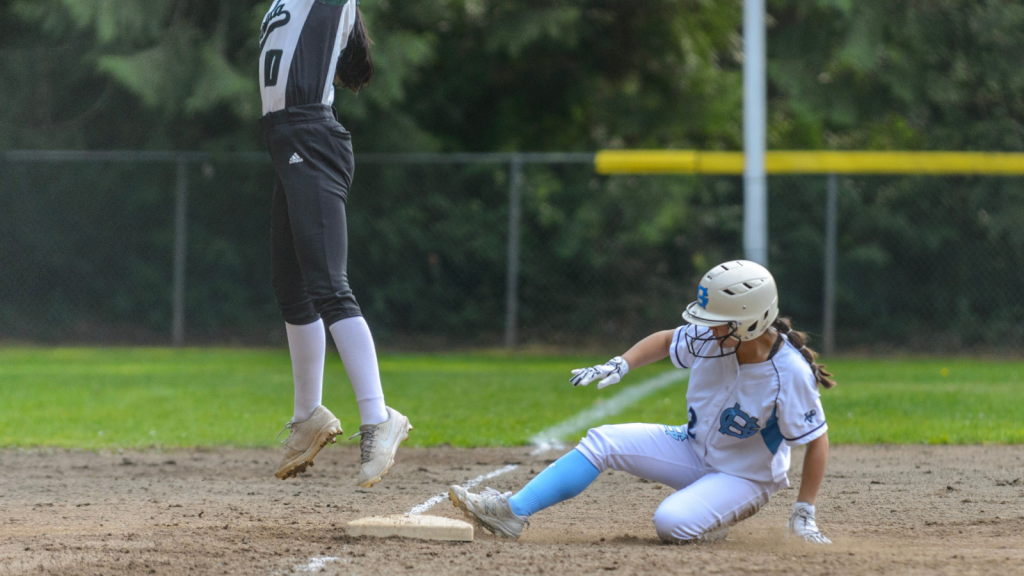
Like my brother had to come to my softball game, so I had to go to support him in Special Olympics or support my mom, never. Made an excuse of like, uh, this is probably not gonna pertain to you, or, Ooh, you probably shouldn’t go to IEP meeting. I’ve seen her throw down in an IEP meeting, and I remember now as a teacher, I’m like, what?
Why was she having to fight so hard in an IEP meeting? What did that teacher not understand? So again, what I saw as a kid allowed me sometimes, I don’t think parents want to expose the other children. Or don’t think they’re ready or don’t want to burden them, but really that’s how we learn for the future of that advocacy.
Um, I’m not saying push it on it or make it a requirement. There’s, there’s a far stretch, but like, say in the middle, right? Like, let it happen naturally, but it, it really does need to happen. Don’t feel like that you’re gonna. your child’s gonna be resentful or resent you for forcing them to go to an IEP meeting once a year, right, right.
You know, and, and, and I wasn’t given an iPad, like I wish I had an iPad back or a phone to play on . I wasn’t given that. I was probably given a coloring book Right. Or a crossword puzzle too. and I really wasn’t listening. I wasn’t even pertaining, but obviously I do remember so much that I didn’t realize I remembered, and it impacted me as an adult.
Um, so just don’t exclude them from all the angles that you think that they’re just not ready because they need to be ready.
Right. Right. Is there any major advice that you would give that we haven’t touched on here?
No. I don’t, I just think, don’t overcomplicate it. Just live life. Um, I think so many times.
Um, I see families exclude, but not intentionally, just kinda like what I mentioned, but like some of the times that I talk with fam uh, siblings the most in, in a protected way. Um, I do a lot of SI talks, but it’s really when they just feel like they are living on the outside of their family, maybe their parent.
Um, and I don’t say that this shouldn’t happen, so please understand. I didn’t grow up, and then maybe I would think differently. I didn’t grow up when there was social media, so like my mom couldn’t have a Nick story page. Right. Right. And it was all about Nick. Right. So, I think when we’re talking about advocacy and we’re talking about sharing our story, I think that’s so important. It’s so important.
But don’t let the sibling be the outsider looking in at how their family’s running.” – Amanda Owen
Um, that’s probably what I see in council the most in. We’re the last to know because what we think the pa, the parents are thinking they’re protecting. But you probably don’t realize how much we hear and how much we know because we’re just watching.
So, try to figure out a way to include us. And probably the, the one thing that impacted my entire life that I really encourage families for multiple kiddos, is let them be them and find an. It, and it doesn’t have to be forced. So like, luckily I got in softball and couldn’t both of my parents come all the time?
No. Um, but they allowed me to have a life and an, and an outlet that I didn’t have to be Nick’s sister. I didn’t have to, I could be around other families that they didn’t protect me from this outside. , right? And they allowed me to find the outlet. So, I would say that’s the biggest thing. Allow, find your kid an outlet.
That doesn’t have to be, don’t think of it like I don’t have time. Or there’s, how do we manage? You’ll figure it out. Another, a village will happen for your, for the other loved one. Just as much as you build a village around the, the individual with a disability, build the village that allows the other.
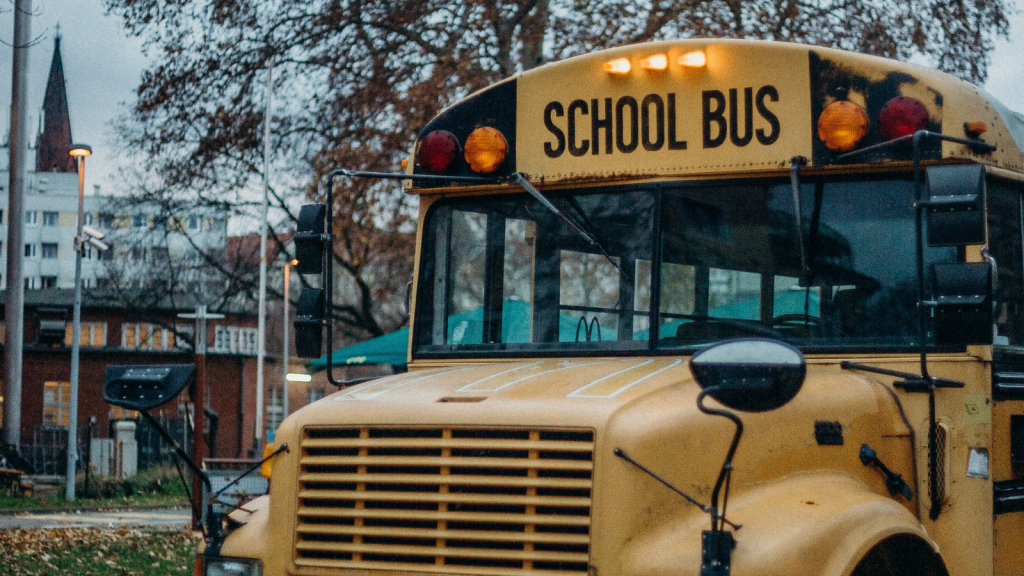
https://www.pexels.com/photo/yellow-school-bus-on-road-4543110/
Even if that means you can’t go to the games, or you can’t go to the recital, or you can’t transport, find the village to allow them to have the outlet and the exposure because they need, that’s their therapy. That will be their therapy. But don’t allow, don’t exclude them from a life just out of protection because they need to be involved in that life.”
– Amanda Owen
I think it’s, it’s important to just, to, to realize a lot of things that, that you’ve said, even between what you’re saying. Um, you were allowed to just be a kid. You were, you were there, you were part of the family. It wasn’t that it was Nick’s family and you were just there, or your family and Nick was just there.
You both were kids in that family. Um, good or bad, your parents did the best that they could, and they made the choices based on the knowledge that they had. Um, it sounds like your mom was a fighter, and I like hearing that because you remember seeing her fighting in an IEP meeting. Mm-hmm. , you know, as an educator yourself later.
What, what gift was that to you to know that the emotion that these moms are bringing into the table, whenever you would have those meetings. So parents that are listening, you know, you’re doing a good job. Just let your kids be kids and your family and I think that’s a good piece. I’m hoping that they’ve taken some pieces out of this to think a little bit about as, as they’re looking forward to the future of, of parenting, but I’ve, I’ve taken encouragement from those phrases that, that, that, that you shared with us.
Well, and you said fighter. I do get, I will say this one story and I didn’t think about it before I actually write about it. Um, I have a eBook that I wrote about the emotional impact of being a sibling to a brother with a disability. And anyways, you can find it’s on Amazon or whatever. It’s an eBook, but I think I write about it in there.
One of the things that being a fighter, my mom when I, going back to those elementary school when I was being pulled in, I do remember going to some of my brother’s IEP meetings then, and maybe it’s because I saw my mom being a fighter and like advocating. Um, so one day on the bus, I think I was in fourth grade, and, and somebody said, you’re ret—ed, like your brother.
And I punched him. Mm-hmm. Like, I pulled him over the seat and punched him. Um, I fought him. I fought him. Um, I’ll never forget that. And a lot of those things over the years have happened. And I had somebody one day tell me, because I’ve always saw my mom be the fighter, like the voice, and she, I’m just lying here.
Like, I’m very powerful in my voice. But what I try to help families to understand advocate is that we can’t fight the world in one situation like that one word that one kid said or that one situation, we can’t fight. That’s why it was so powerful. I wasn’t really kind of fighting the kid. I really wasn’t.
I was fighting the world of how they viewed my brother, just based on what this one kid said. And I let it, now, my mom did take me shopping and rewarded me whenever I was suspended from school for three days, because she’s like, you know, you advocated for your brother. Yeah. But then she also had to say, you don’t have to.
Like that doesn’t have to be your fight. So, I think you have to play on that fence of like when you fight and when you don’t fight. Um, and you don’t have to literally fight with your fists. I learned that right when I was in elementary school, but sometimes our voice does. We do, we’re very defensive because we are fighting such, we’re fighting the society in some of the situations we’re in.
Um so yeah,
Join us next week. For the rest of my conversation with Amanda. We’ll talk more about her experiences, the book she has written to help support children with disabilities and spread awareness and acceptance, and her work with their nonprofit puzzle pieces.
This podcast is made possible by support from our listeners. If you wanna help offset the cost of producing the Water Prairie Chronicles, become a supporter at https://buymeacoffee.com/waterprairie.
You’ve been listening to The Water Prairie Chronicles, a podcast created to encourage and support parents of special needs children. If you found value in this episode, leave a review on Apple Podcast to help us reach more listeners.
I’m glad you were able to join us today and hope to see you back next week for another episode of the Water Prairie Chronicles.
Meet Today’s Guest:
 Amanda Owen is an accomplished children’s book author, blogger, podcaster, and nonprofit founder/director. She is a lifelong advocate for people with disabilities, inspired by her older brother Nick. Amanda is dedicated to empowering women to find their purpose and lead fulfilling lives, free from societal expectations. She and her husband, Justin, have two sons. Amanda’s inspiring message is to dream big, work hard, own your mistakes, and laugh often.
Amanda Owen is an accomplished children’s book author, blogger, podcaster, and nonprofit founder/director. She is a lifelong advocate for people with disabilities, inspired by her older brother Nick. Amanda is dedicated to empowering women to find their purpose and lead fulfilling lives, free from societal expectations. She and her husband, Justin, have two sons. Amanda’s inspiring message is to dream big, work hard, own your mistakes, and laugh often.
